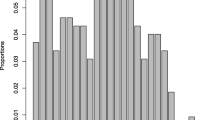Summary
This paper reports the validation of the Maltese translated Edinburgh Postnatal Depression Scale against Diagnostic Criteria for Research (DCR-10) diagnosis for severe, moderate and mild depression during pregnancy (antenatally) and at 8 weeks postnatally.
A random sample of 239 pregnant women were interviewed at booking and at 8 weeks postnatally using a detailed sociodemographic history, the Revised Version of the Clinical Interview Schedule (CIS-R) and Maltese translation of the Edinburgh Postnatal Depression Scale (EPDS). The Maltese translated EPDS had good face validity and had satisfactory sensitivity and specificity for identifying depression both antenatally and postnatally. Cut-off scores of 13/14 antenatally and 11/12 postnatally are recommended when using the Maltese EPDS. Controversial issues surrounds the use of the EPDS in clinical practice. However, introducing the EPDS in pregnancy will help to identify women who are at high risk of depression so as to treat appropriately and early in the antenatal period.
Similar content being viewed by others
References
CEMD (Confidential Enquiries into Maternal Deaths) (2001) Why mothers die 1997–1999. Royal College of Obstetrician and Gynaecologists, London.
Central Office of Statistics (1997) Demographic Review. Government Press, Malta.
JL Cox Y Connor RE Kendell (1982) ArticleTitleProspective study of the psychiatric disorders of childbirth. Br J Psychiatry 118 689–693
J Cox JM Holden R Sagovsky (1987) ArticleTitleDetection of postnatal depression. Development of the 10-item Edinburgh Postnatal Depression Scale. Br Psychiatry 150 782–786 Occurrence Handle1:STN:280:BieD3c7it1E%3D
R Cullinan (1991) ArticleTitleHealth visitor intervention in postnatal depression. Health Visitor 64 IssueID12 412–414 Occurrence Handle1:STN:280:By2C3M3lslQ%3D Occurrence Handle1765527
SA Elliot TJ Leverton (2000) ArticleTitleIs the EPDS a magic wand? ‘Myths’ and the evidence base. J Reprod Infant Psychol 18 296–307
J Evans J Heron H Francomb et al. (2001) ArticleTitleCohort study of depressed mood during pregnancy and after childbirth. Br Med J 323 257–260 Occurrence Handle1:STN:280:DC%2BD3MvjvFOqtQ%3D%3D
JA Flaherty M Gaviria D Pathak T Mitchell R Wintrob J Richamn S Birz (1988) ArticleTitleDeveloping instruments for cross-cultural psychiatric research. J Nerv Ment Dis 175 257–263
DP Goldberg B Cooper M Eastwood H Kedward M Shepherd (1970) ArticleTitleA standardized psychiatric interview for use in community surveys. Br J Prev Soc Med 24 18–23 Occurrence Handle1:STN:280:CS%2BC2c%2Fgslw%3D Occurrence Handle5435083
ICD-10 (1993) Classification of mental and behavioural disorders: diagnostic criteria for research. WHO, Geneva.
L Lewis A Pelosi R Araya G Dunn (1992) ArticleTitleMeasuring psychiatric disorder in the community: a standardized assessment for use by lay interviewers. Psychol Med 22 465–486 Occurrence Handle1:STN:280:By2A3M7jtFY%3D Occurrence Handle1615114
HCD Lou M Nordenfolt et al. (1994) ArticleTitlePrenatal stresses of human life affect fetal brain development. Dev Med Child Neurol 34 826–832
D Murray JL Cox (1990) ArticleTitleScreening for depression during pregnancy with the Edinburgh Depression Scale (EPDS). J Reprod Infant Psychol 8 99–107
MW O’Hara DJ Neunaber EM Zekoski (1984) ArticleTitleProspective study of postpartum depression: prevalence, course, and predictive factors. J Abnorm Psychol 93 158–171 Occurrence Handle1:STN:280:BiuB3MzlsFU%3D Occurrence Handle6725749
SPSS v 11: Statistical analysis software. SPSS Inc., Chicago, Illinois, USA.
JP Watson SA Elliot AJ Rugg DI Brough (1984) ArticleTitlePsychiatric disorder in pregnancy and the first postnatal year. Br J Psychiatry 144 453–462 Occurrence Handle1:STN:280:BiuB3s3oslM%3D Occurrence Handle6733369
KL Wisner KP Peindl BH Hanusa (1993) ArticleTitleRelationship of psychiatric illness to childbearing status; a hospital based epidemiological study. J Affect Disord 28 39–50 Occurrence Handle10.1016/0165-0327(93)90075-U Occurrence Handle1:STN:280:ByyA3MrnsFE%3D Occurrence Handle8326079
B Zuckermann H Amaro H Cabral (1989) ArticleTitleDepressive symptoms during pregnancy: relationship to poor health behaviours. Am J Obstet Gynaecol 160 1107–1111
Author information
Authors and Affiliations
Rights and permissions
About this article
Cite this article
Felice, E., Saliba, J., Grech, V. et al. Validation of the Maltese version of the Edinburgh Postnatal Depression Scale. Arch Womens Ment Health 9, 75–80 (2006). https://doi.org/10.1007/s00737-005-0099-3
Received:
Accepted:
Published:
Issue Date:
DOI: https://doi.org/10.1007/s00737-005-0099-3




